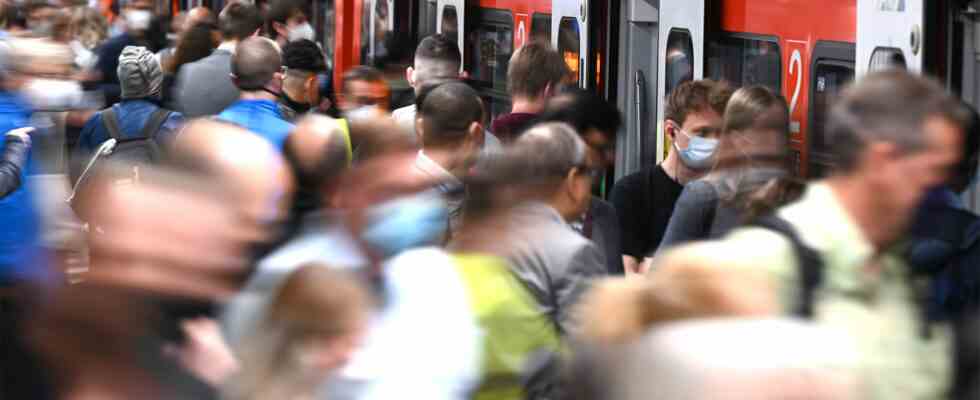Status: 08/18/2022 08:30 a.m
The 9 euro ticket is about to expire. In many cases, those who use buses and trains from September not only pay the normal fares again. In some cases, there are significant price increases by the transport companies.
Passengers have to be prepared for rising prices in local public transport. This was the result of a survey by the German Press Agency among large transport associations. Accordingly, significant wage increases have already been decided in some cases, and the corresponding committee meetings are still pending elsewhere. In and around Stuttgart, for example, tariffs will increase by an average of 4.9 percent at the turn of the year, and by 3 percent in the greater Nuremberg area. In the Rhein-Main-Verkehrsverbund there was already a surcharge of 3.9 percent in July.
Passengers can use the 9-euro ticket for the last time in August in local transport throughout Germany. Then the campaign financed by the federal government ends after three months. It should relieve commuters in the face of high energy prices – and encourage them to switch from cars to public transport. There is no follow-up offer from September 1st.
High energy prices are passed on
In September and October, the committees of the transport associations are therefore discussing the future tariff in many places. High prices for electricity and diesel are a burden for many transport companies and are likely to affect fares in many cases. For example, the Berlin-Brandenburg transport association is based on an index of fuel, electricity and consumer prices. “The respective tariff index is included in the considerations, but does not serve as an exclusive criterion,” said a spokesman.
The Verkehrsverbund Stuttgart emphasized that its surcharge of 4.9 percent was still below the cost increases. In addition, young customers benefited from a new 365-euro annual ticket from March.
Many associations open to a new edition
Many transport associations are open to a new campaign based on the model of the 9-euro ticket, provided that the loss of income is reimbursed. “For the associations, sufficiency is the top priority when it comes to possible successor regulations,” says the Rhein-Sieg transport association.
The transport and tariff association Stuttgart said: “The transport companies are currently facing major financial problems in view of the galloping energy prices.” More money from the federal government is needed just to maintain the stock and expand the offer, regardless of a possible 9-euro ticket successor. “A relatively short-term implementation would be feasible on the basis of the current 9 euro constellation,” signaled the transport association Bremen/Lower Saxony.
A new edition in the Verkehrsverbund Rhein-Neckar (VRN) is rejected. With the 9-euro ticket, it was above all the occasional customers who had hitherto seized the opportunity to travel even cheaper and more frequently, says Managing Director Volkhard Malik. The VRN wants to score points by simplifying its own tariff and making it more flexible.
High costs
In autumn, a federal-state working group wants to present proposals for the future and financing of local public transport. The Association of German Transport Companies has already proposed a permanent 69-euro monthly ticket that should be valid nationwide for public transport. He estimated the costs at around two billion euros a year.

